March 2026 |
|
 | Natalie Stingelin, Georgia Institute of Technology Materials Chemistry Seminar at the University of Utah
with Natalie Stingelin, Georgia Tech TBBC 4630
4th floor Thatcher Title: Phase Diagrams of Complex Materials:
From the Katana, Swiss Chocolates to Polymer Semiconductorsby Natalie Stingelin, Georgia Institute of Technology Abstract: Over the past decade, major advances in polymer-based optoelectronic devices—including organic light-emitting diodes, field-effect transistors, and photovoltaics—have been driven by the development of improved and novel materials. Despite this progress, significant challenges remain, particularly in achieving reliable fabrication, long-term stability, and a fundamental understanding of how structure across length scales governs charge transport, photophysics, and device performance. Here we demonstrate how classical materials science tools can be used to elucidate the structure development of semiconducting polymers from the liquid phase, how such knowledge can be exploited to manipulate their phase transformations and solid-state order and, in turn, their electronic features and device performances. More specifically, we will illustrate how rules that explain the mechanical properties of the Katana and the taste of chocolates, can be applied to organic semiconductors to manipulate their properties and, hence, and their consequent performance Overall, we will demonstrate how thermal analysis can be exploited to obtain important structural information of macromolecular energy harvesting materials, and how processing guidelines can, in turn, be established towards materials of specific optical or electrical characteristics, and improved materials design for organic photovoltaic blends. Host: Connor Bischak  More info More info  Add to calendar Add to calendar  Forward to friends Forward to friends |
|
|
 | Chris Newton, University of Georgia Organic Chemistry Seminar at the University of Utah
with Chris Newton, University of Georgia In person seminar
TBBC 4630
4th floor Thatcher Title: Design and Application of New Pericyclic Strategies
by Christ Newton, University of Georgia Abstract: The overarching theme of our research program concerns the development of new and general pericyclic strategies that enable efficient access to complex cyclic frameworks of biological importance. A hallmark of our approach is the design of atypical cycloaddition reaction partners that are at a high oxidation level (i.e., large degree of heteroatom incorporation and/or unsaturation) in order to confer unique reactivity, while also minimizing the need for redox manipulations post cycloaddition. A significant challenge within this area is the development of methods that remain operationally friendly, for highly unsaturated heteroatom-rich molecules often exhibit challenging stability profiles. Generally speaking, our approaches leverage fundamental structure and reactivity studies to inform the optimization of our proposed reaction partners in order to gain kinetic stability without sacrificing desired reactivity. Once we have developed a new methodology, our focus pivots toward applications in target-oriented synthesis, typically merging our abiotic pericyclic methodologies with bioinspired cascades. Host: Andrew Roberts  More info More info  Add to calendar Add to calendar  Forward to friends Forward to friends |
|
|
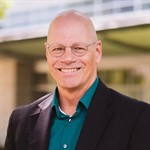 | Kevin Moeller, Washington University in St Louis Organic Chemistry Seminar at the University of Utah
with Kevin Moeller, Washington University in St. Louis TBBC 4630
4th floor Thatcher
In-person seminar Title: From Molecules to Molecular Surfaces and Back Again. Exploiting the Synergy Between Electrochemistry and Synthesis.
by Kevin Moeller, Washington University in St. Louis Abstract: Electrochemistry has long held potential as a tool for constructing a wide variety of organic molecules, and the organic chemistry community is both recognizing and impressively exploiting that potential with increasing regularity. Those efforts have taught us a great deal about how to think about electrochemical reactions and how to use the technique to accomplish new transformations that enrich the synthetic enterprise. For our part, we have investigated a series of anodic cyclization reactions and used those reactions to both lay out a mechanistic framework for developing direct electrochemical reactions and to develop strategies for thinking about the unique aspects of electrochemical experiments.
The relationship between organic synthesis and electrochemistry can also be viewed in the opposite direction with the new synthetic chemistry being developed in order to facilitate exciting opportunities to expand the scope of electrochemical experiments. For example, new synthetic methods that allow for the site-selective generation of chemical reagents have enabled the construction of complex molecular surfaces on addressable microelectrode arrays. The efforts set the stage for developing the microelectrode arrays as analytical devices for rapidly screening the binding behavior of small molecule libraries with biological targets and developing rapid "point of care" diagnostics.
The exploration of these new electrochemical tools is beginning to “give back” to the synthetic arena. A number of preparative scale synthetic applications have now arisen based on the concept of site-selective reagent generation. These applications range from the use of paired electrochemical reactions for more sustainable reagent generation to the recent discovery that chemical reagents can be confined to specific regions within a preparative reaction; a development that offers a new strategy for controlling the selectivity of chemical transformations.
In the talk to be given, the interplay between organic synthesis and electrochemistry will be highlighted with an emphasis on lessons learned and challenges being undertaken Host: Qilei Zhu  More info More info  Add to calendar Add to calendar  Forward to friends Forward to friends |
|
|
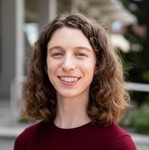 | Megan Jackson, University of North Carolina at Chapel Hill Physical Chemistry Seminar at the University of Utah
with Megan Jackson, University of North Carolina at Chapel Hill TBBC 4630
4th floor Thatcher
In-person seminar Title: TBA
by Megan Jackson, University of North Carolina at Chapel Hill Abstract: TBA Host: MingLee Tang and Long Luo  More info More info  Add to calendar Add to calendar  Forward to friends Forward to friends |
|
|
 | Stang-Burrows-Sessler Lectureship with Hanadi Sleiman, McGill University Stang-Burrows-Sessler Lectureship at the University of Utah
with Hanadi Sleiman, McGill University TBBC 4630
4th floor Thatcher
In-person seminar Title: DNA Nanostructures as Precision Therapies
by Hanadi Sleiman, McGill University Abstract: DNA is the fundamental building block of life, the blueprint that defines who we are. But the very properties that make DNA such a reliable molecule for information storage also make it a remarkable building material.
Our research group takes DNA out of its biological context and uses this molecule to build nanostructures, for applications in biology and materials science. By combining DNA with synthetic molecules and polymers, we create 3D-DNA host structures, such as cages, nanotubes, nanoparticles and fibers that are promising for targeted drug delivery. These nanomaterials can be precisely controlled in size, shape, and presentation of molecules on their surface; They selectively respond to environmental cues, ‘unzipping’ on contact with cancer-specific molecules and releasing drug cargo.
We find that they resist nuclease degradation and silence gene expression to a significantly greater extent than their component strands. They achieve strong therapeutic outcomes in vivo, in multiple organs and disease sites, unlike other nucleic acid treatments that only target the liver. We will describe the applications of these DNA structures as drug delivery vehicles to cancer cells.
We will also discuss the ability of small molecules to reprogram the assembly of DNA, away from Watson-Crick-Franklin base-pairing and into new motifs for drug delivery and tissue regeneration. Bio: Hanadi Sleiman is a Professor of Chemistry and Canada Research Chair in DNA Nanoscience at McGill University. She received her Ph.D. from Stanford University, and was a CNRS postdoctoral fellow in Prof. Jean-Marie Lehn’s laboratory at the Université Louis Pasteur. She joined the faculty at McGill University in 1999, and her research group focuses on using the molecule DNA as a template to assemble nanostructured materials.
Sleiman is Fellow of the Royal Society (London) and of the Royal Society of Canada, and was Associate Editor of J. Am. Chem. Soc. (2017-25). Among her research recognitions are the Canadian Society for Chemistry E. W. R. Steacie Award (2024), NSERC Polanyi Award (2021), Izatt-Christensen Award in Supramolecular Chemistry (2016) and Killam Research Fellowship (2018).
Sleiman also received the Society of Chemical Industry Kalev Pugi award (2024), Cottrell STAR Award (2021), Albus Award (Grifols, 2018), Canadian Society of Chemistry R. U. Lemieux Award in Organic Chemistry (2018), Netherlands Scholar Award in Supramolecular Chemistry (2018), Canadian Society for Chemistry Strem Award (2009), NSERC Discovery Accelerator (2008), McGill Dawson Award (2004-13), Fellow of the Canadian Institute for Advanced Research (2004-12) and Cottrell Scholar (Research Corp., 2002). She received named lectureships including Ayer (U. Alberta), Hirschmann (U. Wisconsin-Madison), BP Sustainability (U. Cambridge), Bristol-Myers-Squibb (Columbia U. and MIT), Swiss Chemical Society (U. Genève, EPFL, U. Neuchâtel, U. Fribourg, U. Basel) and E. Gordon Young (Chemical Institute of Canada).
Sleiman is Editorial Advisory Board member of J. Org. Chem., ChemBioChem, and Trends in Chem. She received the McGill Principal’s Prize (2002) and the Leo Yaffe Award (2005) for Excellence in Teaching. Host: Cindy Burrows  More info More info  Add to calendar Add to calendar  Forward to friends Forward to friends |
|
|
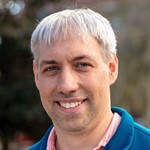 | Ken Hanson, Florida State University Physical Chemistry Seminar at the University of Utah
with Ken Hanson, Florida State University TBBC 4630
4th floor Thatcher
In-Person Seminar Title: TBA
by Ken Hanson, Florida State University Abstract: TBA Host: MingLee Tang  More info More info  Add to calendar Add to calendar  Forward to friends Forward to friends |
|
April 2026 |
|
 | Raul Navarro, Occidental College Organic Chemistry Seminar at the University of Utah
with Raul Navarro, Occidental College TBBC 4630
4th floor Thatcher
In-person seminar Title: TBA
by Raul Navarro, Occidental College Abstract: TBA Host: Matt Sigman  More info More info  Add to calendar Add to calendar  Forward to friends Forward to friends |
|
|
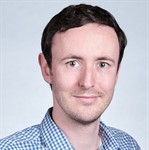 | Robert Lazenby, Florida State University Analytical Chemistry Seminar at the University of Utah
with Robert Lazenby, Florida State University In-Person Seminar
TBBC 4630
4th floor Thatcher Title: TBA
by Robert Lazenby, Florida State University Abstract: TBA Host: Long Luo  More info More info  Add to calendar Add to calendar  Forward to friends Forward to friends |
|
|
 | Yitong Dong, University of Oklahoma Chemistry Seminar at the University of Utah
with Yitong Dong, University of Oklahoma In-person seminar
TBBC 4630
4th floor Thatcher Title: TBA
by Yitong Dong, University of Oklahoma Abstract: TBA Host: Minglee Tang  More info More info  Add to calendar Add to calendar  Forward to friends Forward to friends |
|
|
 | Jenny Yang, UC Irvine Analytical/Physical Chemistry Seminar at the University of Utah
with Jenny Yang, UC Irvine TBBC 4630
In-Person Seminar Title: TBA
by Jenny Yang, UC Irvine Abstract: TBA Host: Long Luo  More info More info  Add to calendar Add to calendar  Forward to friends Forward to friends |
|
|
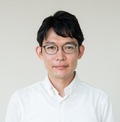 | Nobuhiro Yanai, University of Tokyo Organic and Materials Seminar at the University of Utah
with Nobuhiro Yanai, University of Tokyo TBBC 4630
4th floor Thatcher
In-Person Seminar Title: TBA
by Nobuhiro Yanai Abstract: TBA Host: Ming Lee Tang  More info More info  Add to calendar Add to calendar  Forward to friends Forward to friends |
|
|
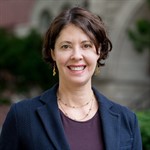 | Christy Landes, University of Illinois Urbana-Champaign The Ted Eyring Lecture at the University of Utah
with Christy Landes, University of Illinois Urbana-Champaign TBBC 4630
4th floor Thatcher
In-Person Seminar Title: TBA
by Christy Landes Abstract: TBA Host: Connor Bischak  More info More info  Add to calendar Add to calendar  Forward to friends Forward to friends |
|
|
 | Yifan Wang, University of Georgia Chemistry Seminar at the University of Utah
with Yifan Wang, University of Georgia TBBC 4630
4th floor Thatcher
In-person seminar Title: TBA
by Yifan Wang, University of Georgia Abstract: TBA Host: Andrew Roberts/Qilei Zhu  More info More info  Add to calendar Add to calendar  Forward to friends Forward to friends |
|
|
 | The Giddings Lecture with Pat Unwin, University of Warwick The Giddings Lectures at the University of Utah
with Pat Unwin, University of Warwick TBBC 4630
4th floor Thatcher
In-Person Seminar Title: TBA
by Pat Unwin, University of Warwick Host: Long Luo
 More info More info  Add to calendar Add to calendar  Forward to friends Forward to friends |
|
|
 | The Giddings Lecture at the University of Utah with Pat Unwin, University of Warwick The Giddings Lecture at the University of Utah
with Pat Unwin, University of Warwick TBBC 4630
4th floor Thatcher
In-Person Seminar Title: TBA
by Pat Unwin, University of Warwick Abstract: TBA Host: Long Luo  More info More info  Add to calendar Add to calendar  Forward to friends Forward to friends |
|
|
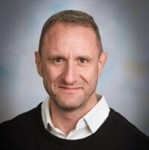 | Andrew McNally, Colorado State University Organic Chemistry Seminar at the University of Utah
with Andrew McNally, Colorado State University In-person seminar
4630 TBBC
4th floor Thatcher Title: Chemistry for Medicinal Chemistry
with Andrew McNally, Colorado State University Abstract: Pyridines and diazines are ubiquitous in pharmaceuticals and agrochemicals, yet there are limits in synthetic methods that can directly functionalize the C–H bonds in these structures. We will show three distinct approaches, using phosphorus, ring-opened intermediates and deconstruction-reconstruction, that enable selective functionalization of these heterocycles into a range of valuable derivatives. A range of C–C and C–Heteroatom bond formations are viable, and the chemistry functions on structures typically encountered in drug discovery programs. Our lab has also performed mechanistic and computational studies of the regioselectivity of these reactions and the phosphorus ligand-coupling processes involved. Host: Qilei Zhu  More info More info  Add to calendar Add to calendar  Forward to friends Forward to friends |
|